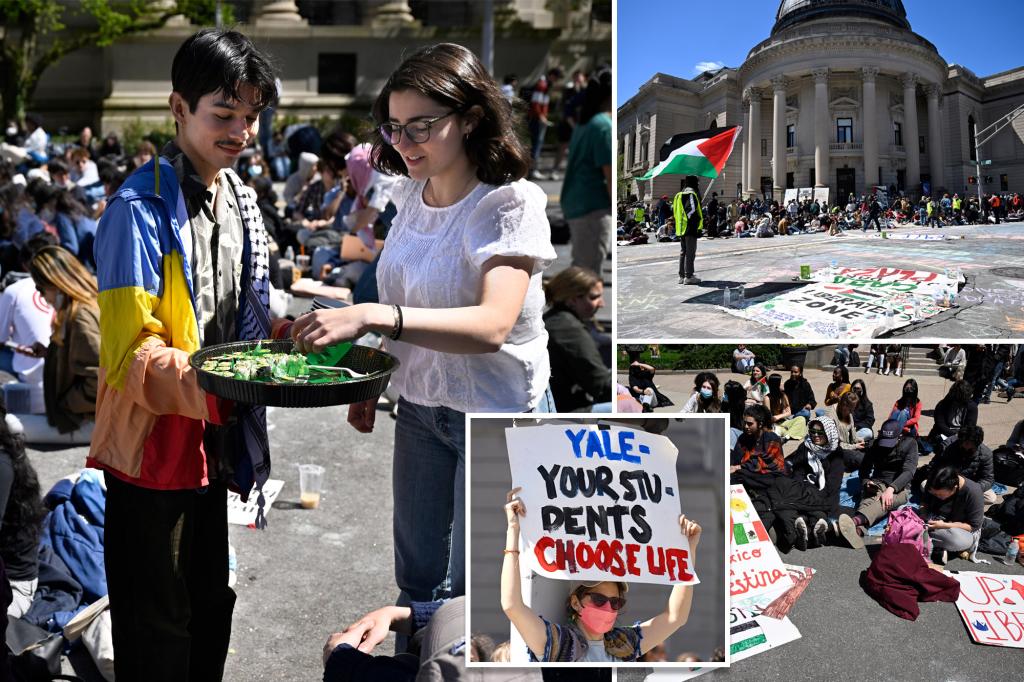Anti-Israel protesters at Yale University were caught feasting on sushi during a weeklong hunger strike aimed at forcing the university to divest from weapons manufacturers associated with Israel’s conflict in Gaza. The protesters were on their sixth day of the hunger strike when they were seen eating sushi, calling into question the legitimacy of their protest. Despite being arrested by riot police for refusing to clear their encampment, the protesters seemed to be in good spirits, even engaging in salsa dancing and enjoying their time denouncing capitalism and their own expensive education.
The protest at Yale University highlights the ongoing debates around the Israeli-Palestinian conflict and the ways in which universities are pressured to divest from companies with ties to the conflict. The protesters, who have been critical of Israel’s actions in Gaza, have been calling for the university to cut all ties with weapons manufacturers affiliated with the conflict. The use of a hunger strike as a form of protest is a common tactic to draw attention to humanitarian crises, but the protesters’ actions have been called into question due to their sushi feast during the strike.
The presence of riot police on the Yale University campus underscores the intense reactions and responses to protests against Israel and the ways in which universities deal with contentious issues. The arrests of dozens of students who refused to comply with orders to clear their encampment indicate the challenges universities face in managing protests and balancing free speech with campus security. The use of force against protesters can be controversial, with critics arguing that it suppresses dissent and limits the ability of students to speak out against perceived injustices.
Despite the arrests and police presence, the protesters at Yale seemed to be enjoying themselves, with some even engaging in salsa dancing and other festive activities. This juxtaposition of serious political protest and lighthearted celebrations highlights the complexities of activism and the ways in which individuals navigate the challenges of balancing advocacy with personal enjoyment. The protesters’ willingness to continue their protest in the face of adversity suggests a commitment to their cause and a determination to make their voices heard on campus.
The actions of the anti-Israel protesters at Yale University raise questions about the efficacy of hunger strikes and the strategies used by activists to bring about change. While hunger strikes can be powerful tools for drawing attention to humanitarian crises and injustices, their impact may be diminished if protesters are seen engaging in contradictory behaviors such as feasting on sushi. The protesters’ actions have sparked debates about the intersection of activism, politics, and personal behavior, highlighting the complexities of social movements and the challenges of effecting meaningful change within institutions and society.













